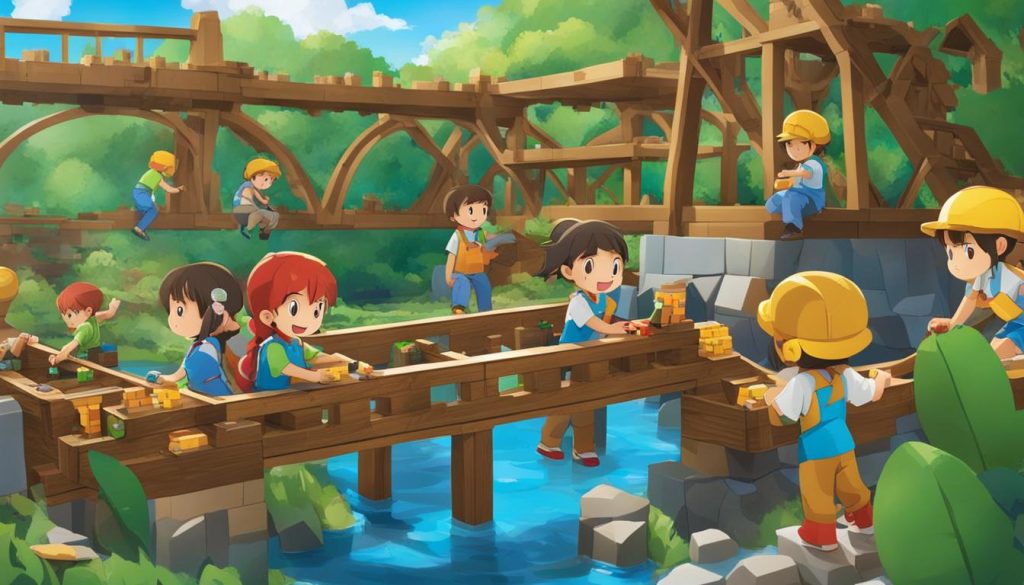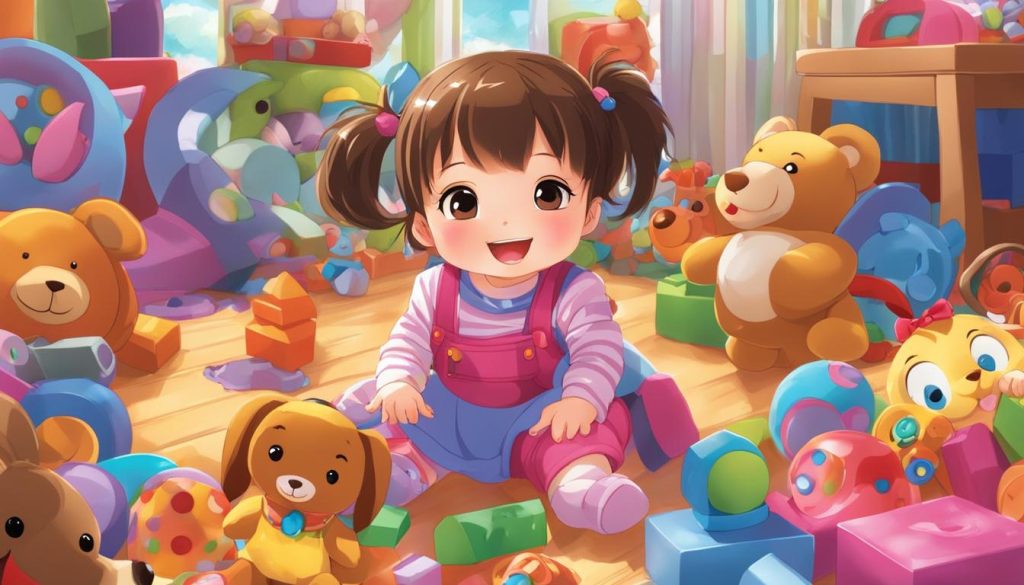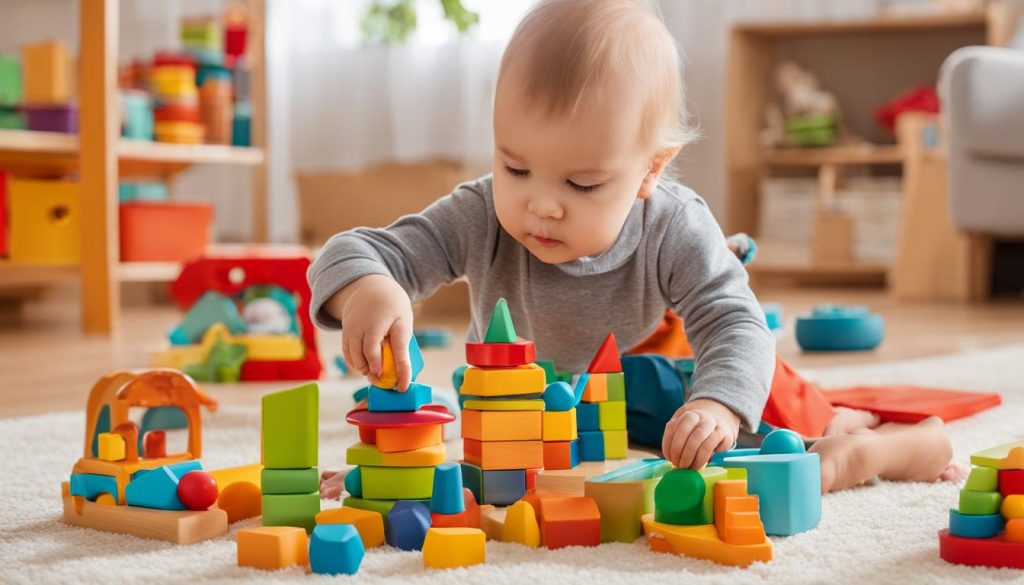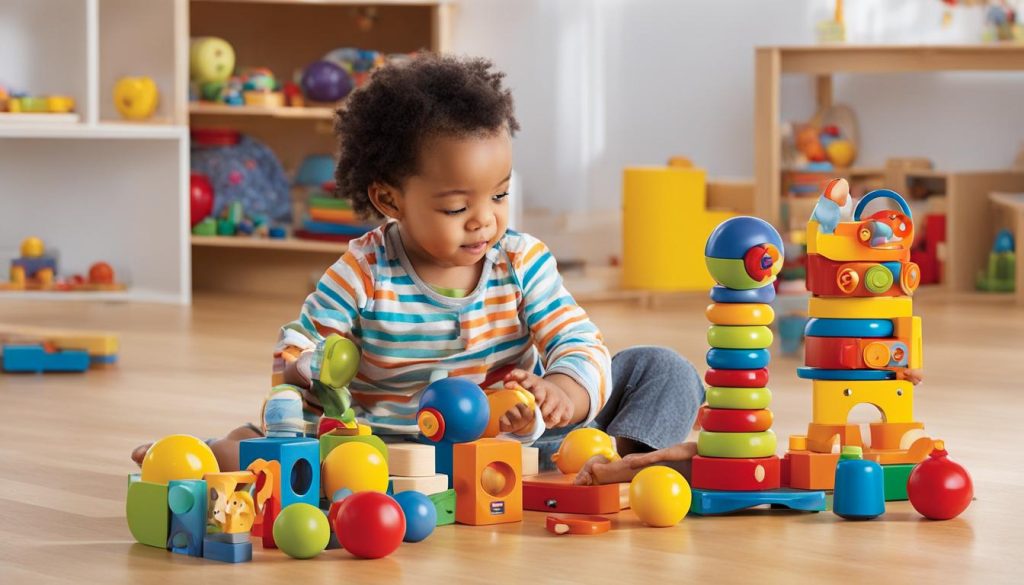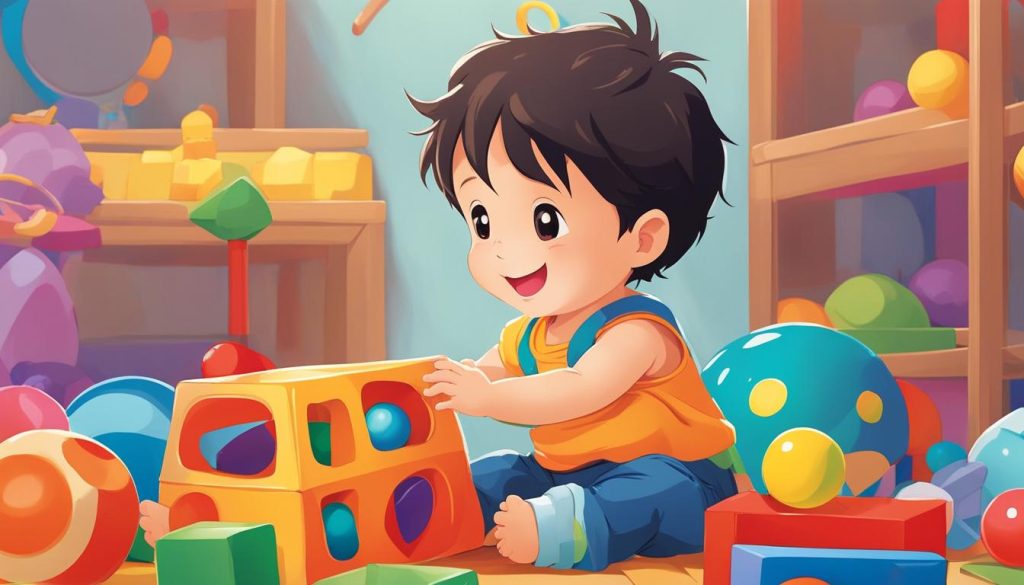In order to engage and educate children, it is important to provide them with the best engineering toys that can spark their creativity. These toys not only entertain but also teach important concepts in science, technology, engineering, and math (STEM). By exploring hands-on learning, children can develop problem-solving skills and foster a love for learning from an early age.
When it comes to educational toys, engineering toys for kids are an excellent choice. They not only provide entertainment but also offer a valuable learning experience. By engaging children in hands-on activities, these toys help develop their problem-solving skills, critical thinking abilities, and creativity. Whether it’s building sets, construction toys, or robotics kits, these toys offer endless possibilities for children to learn, grow, and have fun.
In this article, I will explore the importance of educational play in early childhood, discuss expert opinions on the impact of educational play, and provide a list of top engineering toys for toddlers, preschoolers, and grade-school children. So, if you’re looking to ignite your child’s creativity and passion for learning, keep reading to discover the best engineering toys available!
The Importance of Educational Play in Early Childhood
Educational play in early childhood is crucial for the development of newborns and young children. By providing them with educational materials and toys, parents and caregivers can actively support their cognitive and motor skill development.
Studies have shown that play is vital for brain development in children, enabling them to learn and grow holistically. Through play, children develop problem-solving skills, critical thinking abilities, and enhance their creativity. It also fosters important social and emotional skills, allowing children to interact with others, express themselves, and develop empathy.
By incorporating educational toys into playtime, children can engage in meaningful hands-on learning experiences. These toys are specifically designed to promote learning and development in various domains, including STEM, language, fine motor skills, and more. They provide opportunities for exploration, experimentation, and discovery, allowing children to learn through trial and error in a fun and interactive way.
The Benefits of Educational Play:
- Enhances cognitive development
- Boosts motor skills
- Encourages problem-solving and critical thinking
- Promotes creativity and imagination
- Fosters social and emotional skills
“Play is the highest form of research.” – Albert Einstein
As Albert Einstein famously said, play is not just a means of entertainment, but a valuable avenue for learning and growth. It is through play that children develop essential skills and knowledge that form the foundation for future learning.
| Age Group | Recommended Educational Toys |
|---|---|
| Newborns to 6 months | Soft sensory toys, rattles, mobiles |
| 6 months to 1 year | Stacking toys, shape sorters, musical instruments |
| 1 to 3 years | Building blocks, puzzles, pretend play sets |
| 3 to 5 years | STEM toys, construction sets, art supplies |
Expert Opinions on the Impact of Educational Play
Many experts in the field of child development and education have emphasized the significant impact of educational play on a child’s growth and development. According to pediatric neuropsychologists and science education professors, providing children with toys that are not only educational but also engaging can have a positive effect on their learning outcomes.
“Educational toys that are open-ended and relate to the real world allow children to engage in trial-and-error exploration,” says Dr. Sarah Thompson, a pediatric neuropsychologist. “These types of toys promote problem-solving skills, creative thinking, and overall cognitive development in growing babies.”
“Toys that encourage hands-on learning and are replayable provide children with the opportunity to explore different concepts and engage in imaginative play,” states Dr. David Johnson, a science education professor. “This type of play enhances their problem-solving abilities, critical thinking skills, and fosters a love for learning from an early age.”
It is important for parents to select toys that meet the developmental needs of their growing babies. Educational play not only stimulates their curiosity but also helps them develop essential skills required for success in science, technology, engineering, and math (STEM) fields. By providing children with the right toys, parents can create an environment that promotes learning, innovation, and the joy of discovery.
The Impact of Educational Play on Cognitive Development
Research has shown that educational play has a profound impact on a child’s cognitive development. By engaging in hands-on activities with educational toys, children develop problem-solving skills, spatial awareness, and logical reasoning abilities.
“Toys that involve building, construction, and puzzles challenge children’s minds and encourage them to think critically,” says Dr. Emily Wilson, a child psychologist. “These types of activities stimulate their cognitive processes and help them understand cause and effect relationships.”
Furthermore, educational play also promotes language development and enhances communication skills. Playing with toys that require verbal interaction and storytelling helps children expand their vocabulary, improve language fluency, and develop social skills by engaging in imaginative play with their peers.
| Positive Effects of Educational Play on Cognitive Development: | Negative Effects of Lack of Educational Play on Cognitive Development: |
|---|---|
|
|
It is evident that providing children with educational play opportunities significantly contributes to their cognitive development. By incorporating these activities into their daily routine, parents can give their children a head start in acquiring essential cognitive skills that will benefit them throughout their lives.
Top Engineering Toys for Toddlers and Preschoolers
When it comes to introducing toddlers and preschoolers to the fascinating world of engineering, there are a plethora of options available. Building toys and construction toys, in particular, provide an ideal platform for young children to explore basic engineering concepts while engaging in fun and interactive play.
Building toys such as blocks, magnetic tiles, and interlocking gears allow children to experiment with balance, structure, and problem-solving. These toys not only help develop fine motor skills, hand-eye coordination, and spatial awareness but also stimulate creativity and imagination. As children stack blocks, create structures, and overcome challenges, they learn valuable lessons about cause and effect, trial and error, and the importance of perseverance.
Construction toys like marble runs, building sets, and puzzles offer opportunities for children to develop critical thinking skills as they design and construct their own creations. These toys enhance problem-solving abilities, as children figure out how to connect different pieces, follow instructions, and overcome obstacles. Additionally, construction toys foster spatial reasoning and logical thinking, encouraging children to think in three dimensions and envision how different parts interact to form a whole.
In summary, engineering toys for toddlers and preschoolers provide numerous benefits for their development. They promote hands-on learning, problem-solving skills, creativity, and cognitive abilities. By engaging in play with building toys and construction toys, young children can unleash their imagination, explore fundamental engineering principles, and have fun while learning.
STEM Toys for Grade-School Kids
As children progress into grade school, their curiosity and interest in STEM-related activities continue to grow. This is the perfect time to introduce them to STEM toys that can further develop their skills and knowledge in science, technology, engineering, and math. By engaging with these toys, children can enhance their problem-solving abilities, critical thinking skills, and creativity.
One popular category of STEM toys for grade-schoolers is robotics toys. These toys not only provide hours of entertainment but also allow children to learn the basics of coding and programming. By building and programming robots, kids can develop their logical thinking and gain hands-on experience with technology.
“STEM toys offer children a unique opportunity to explore and experiment with different concepts in a fun and interactive way,” says Dr. Lisa Thompson, a professor in science education. “Robotics toys, in particular, provide children with a hands-on experience that combines engineering and technology, stimulating their problem-solving skills.”
Creative toys are also essential for grade-school kids as they encourage imagination and innovation. These toys may include building sets, art kits, or construction toys that allow children to design and create their own projects. By engaging in creative play, kids can develop their artistic abilities, spatial awareness, and critical thinking skills.
In summary, STEM toys for grade-school kids play a crucial role in their overall development. Robotics toys introduce children to coding and programming concepts, while creative toys foster imagination and innovation. By providing these toys, parents and educators can encourage children to explore and excel in STEM subjects while having fun along the way.
| STEM Toys for Grade-School Kids | Benefits |
|---|---|
| Robotics Toys | – Introduces coding and programming concepts – Enhances logical thinking – Develops problem-solving skills |
| Creative Toys | – Encourages imagination and innovation – Develops artistic abilities – Enhances critical thinking |
Expert Insights: Dr. Lisa Thompson
“STEM toys offer children a unique opportunity to explore and experiment with different concepts in a fun and interactive way,” says Dr. Lisa Thompson, a professor in science education. “Robotics toys, in particular, provide children with a hands-on experience that combines engineering and technology, stimulating their problem-solving skills.”
By investing in STEM toys for grade-school kids, parents and educators can foster a love for learning and pave the way for future success in STEM fields. Encouraging children to explore, experiment, and think critically through play helps build a strong foundation for their academic and personal growth.
Conclusion
In conclusion, engineering toys for kids are an invaluable tool for fostering creativity and promoting hands-on learning. These educational toys not only entertain children but also introduce them to important concepts in science, technology, engineering, and math (STEM). By engaging in play with engineering toys, kids develop problem-solving skills and cultivate a love for learning from a young age.
Parents and caregivers play a crucial role in providing children with the best engineering toys that can ignite their imagination and curiosity. Whether it’s building sets, construction toys, or robotics kits, these toys offer endless opportunities for children to explore, experiment, and expand their knowledge. The open-ended nature of engineering toys allows kids to think critically, innovate, and apply their creativity to solve challenges.
Investing in engineering toys for kids is an investment in their future. By incorporating these toys into playtime, children not only have fun but also develop essential skills that will benefit them throughout their lives. From improving fine motor skills to enhancing spatial awareness, engineering toys contribute to a child’s overall cognitive and physical development.
So, if you want to inspire your child and stimulate their curiosity, consider getting them the best engineering toys. These toys will not only spark their creativity but also pave the way for a lifelong love of learning and exploration.
FAQ
What are engineering toys for kids?
Engineering toys for kids are toys that promote learning in science, technology, engineering, and math (STEM) subjects. These toys are designed to engage children in hands-on learning and spark their creativity.
Why are educational toys important for early childhood development?
Educational toys are important for early childhood development because they aid in cognitive and motor skill development. Play with educational materials and toys helps children learn problem-solving, critical thinking, and enhances their creativity.
What do experts say about the impact of educational play?
According to experts, educational toys that are open-ended, relate to the real world, encourage trial-and-error exploration, and are replayable can have a positive impact on a child’s learning. These toys enhance problem-solving skills, creative thinking, and overall cognitive development.
What engineering toys are suitable for toddlers and preschoolers?
Building toys and construction toys are particularly suitable for toddlers and preschoolers as they allow young children to explore basic engineering concepts such as balance, structure, and problem-solving. These toys also help develop fine motor skills, hand-eye coordination, and spatial awareness.
What STEM toys are ideal for grade-school kids?
STEM toys that incorporate robotics, creative play, and problem-solving skills are ideal for grade-school kids. Robotics toys can introduce children to coding and programming concepts, while creative toys encourage imagination and innovation. These toys provide entertainment and foster a deeper understanding of STEM subjects.
Why should I invest in engineering toys for my child?
Investing in engineering toys for your child can spark their creativity and promote learning through play. These toys engage their minds, encourage hands-on exploration, and help develop crucial skills and knowledge in STEM subjects. They offer endless opportunities for learning, growth, and fun.

